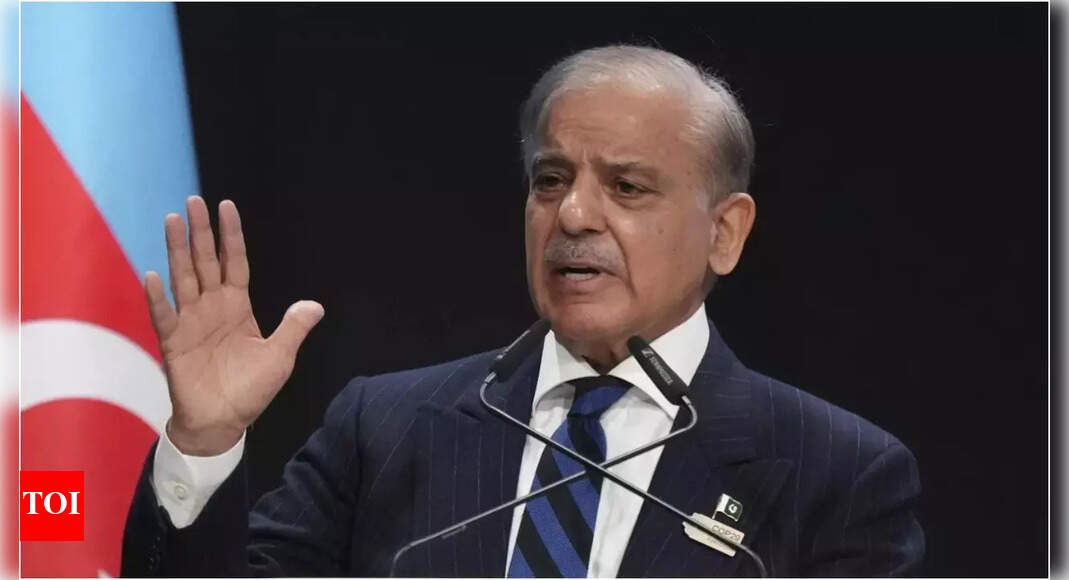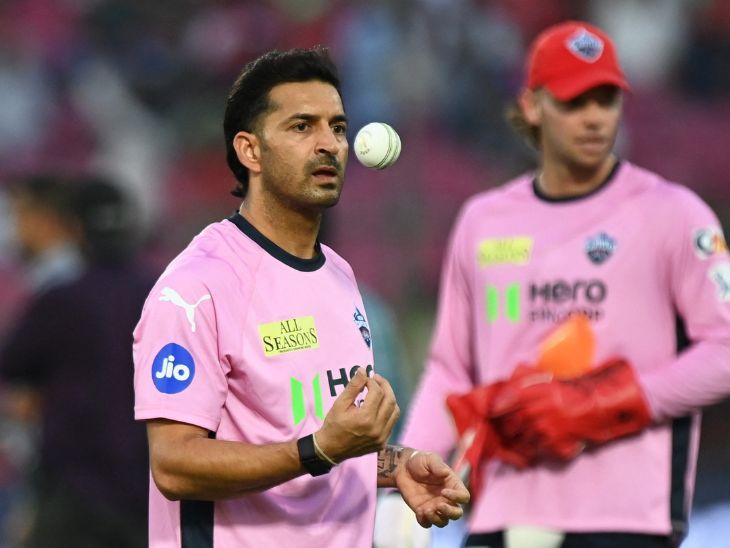Shocking Admission: Shehbaz Sharif Confirms Indian BrahMos Missiles Struck Pakistan Airports!
Shehbaz Sharif Confirms Indian Missile Strikes: A New Chapter in Indo-Pak Relations?
In a recent trilateral summit in Lachin, Azerbaijan, Pakistan Prime Minister Shehbaz Sharif made shocking admissions about Indian missile strikes on Pakistani territory. His comments have reignited discussions surrounding the complex and often volatile relationship between India and Pakistan. Notably, Sharif revealed that Indian missiles, including the supersonic BrahMos, struck multiple locations deep within Pakistan, one of which was an airport in Rawalpindi. These developments raise questions about regional security and the nature of military engagements between these two nations.
The Context of the Claims
During his speech, Sharif outlined a timeline of events leading up to the missile strikes. He stated, “On the night of 9th and 10th, we decided to respond in a measured fashion to Indian aggression,” referring to Pakistan’s planned counter-strike. However, before it could take action, India launched missile attacks that hit various provinces in Pakistan, including the critical Nur Khan Airbase in Rawalpindi. This admission shed light on the tense military standoff that has characterized the relations between the two countries for decades.
Operation Sindoor: What Happened?
This acknowledgment is not the first from Sharif regarding the impact of Operation Sindoor, which India launched following a terrorist attack in Pahalgam. The operation targeted terrorist infrastructure in Pakistan, striking terror launchpads and causing significant casualties among militants. It was during the fallout from these strikes that Indian ballistic missiles were reported to have hit multiple military positions in Pakistan. Key points about the operation include:
- Date: May 2023
- Targets: Nine terrorist launchpads in Pakistan and Pakistan-occupied Kashmir (PoK)
- Casualties: Over 100 militants were reported killed
- Consequences: Damage to 11 Pakistani airbases after failed counter-strike attempts
The operation was indicative of escalating tensions in the region and emphasized the precarious balance of power between India and Pakistan.
Pakistan’s Military Response
Sharif recounted a bold military strategy that was planned at 4:30 AM for a counter-offensive. He stated, “We intended to teach a lesson to our enemy, but before that hour reached, India launched missile attacks.” This admission highlights a significant aspect of military strategy in the region, reflecting the high-stakes nature of military engagements. Pakistan’s military preparations included:
- Gathering intelligence on Indian positions.
- Mobilizing armed forces under the leadership of Chief Army Staff, General Syed Asim Munir.
- Strategizing a calculated response to perceived aggression.
The rapid succession of military actions raises eyebrows about tactical decisions made by both nations during moments of crisis.
Calls for Dialogue Amidst Tensions
Despite the obvious tension, Prime Minister Sharif has consistently called for dialogue with India. He emphasized the need to discuss issues like peace, terrorism, water-sharing, and the contentious Kashmir issue. However, he cautioned, “But if they choose to remain aggressors, then we shall defend our territory.”
This call for negotiation has been met with firm rejection from India. External Affairs Ministry spokesperson Randhir Jaiswal reiterated New Delhi’s stance, stating, “Terrorism and talks cannot go together.” India maintains that dialogues regarding Jammu and Kashmir will only take place under specific conditions, particularly relating to Pakistan’s stance on cross-border terrorism.
The Broader Implications
The recent revelations and military actions highlight the precarious nature of Indo-Pak relations. As both nations navigate their strategic military capabilities, the threat of escalated conflict looms large. The international community watches closely as the situation unfolds, fearing that any miscalculation could lead to severe consequences.
In conclusion, Shehbaz Sharif’s candid acknowledgment of Indian strikes underscores an unsettling reality in the South Asian geopolitical landscape. As rhetoric intensifies, and military posturing becomes the norm rather than the exception, the call for peace and dialogue remains a distant hope for millions living in the shadow of potential conflict.






